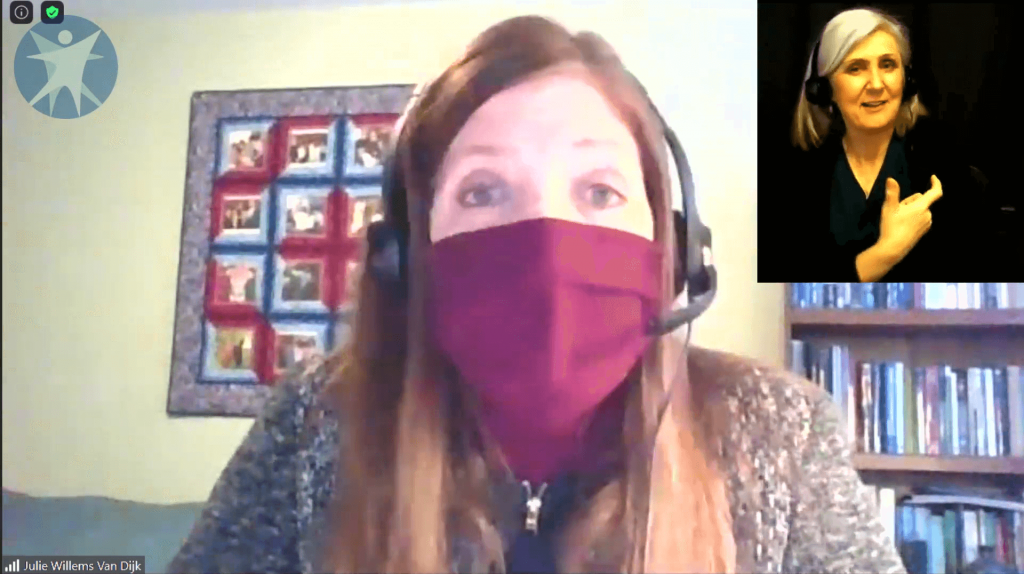Will There Be Enough Vaccines For Teachers?
As of Monday they can get vaccinated. But supplies likely to fall short.

Julie Willems Van Dijk, Wisconsin Deputy Health Secretary, speaks to reporters Thursday during a briefing on the state’s COVID-19 vaccine distribution. YouTube screen capture.
As Wisconsin gets ready to give COVID-19 vaccinations to teachers and other educators, state health officials caution that it could take two months to accomplish, while the imminent approval of a third vaccine might allow a faster timetable.
The state Department of Health Services (DHS) confirmed Thursday that vaccinations will start Monday for child care workers, grade K through 12 teachers, other school personnel who have regular contact with children and higher education employees who have regular contact with students.
Different communities will likely take different approaches, said Van Dijk, with some schools or districts arranging partnerships with local health providers and others holding onsite clinics organized by the local health department. “Others may work with local pharmacies to administer their vaccines,” she added.
“We know each community and each school district is different, and that we need different plans to address the specific needs of each community throughout our state,” Van Dijk said.
Priority will be given to schools with high levels of poverty among their students — a characteristic that she said isn’t limited to urban districts but includes significant rural areas in the state.
Vaccine supplies have improved in recent weeks, but the number of doses that are reaching the state now — about 120,000 a week — still falls short of the total demand.
Addressing the state’s child care workers, teachers and other educators during a media briefing Thursday, Van Dijk said: “You’re going to get to a vaccine. We cannot get every one of you a vaccine on March 1. But you are all going to get a vaccine in in the next four to six weeks.”
As educators get vaccinated, other people in earlier priority groups who haven’t yet received shots will still be able to get them, Van Dijk said. Those include health care workers, police and other first responders and people 65 and older.
The new Johnson & Johnson vaccine may help the state get to those groups sooner. This weekend, the single-shot vaccine won final approval from the Food and Drug Administration.
In the meantime, Van Dijk said, the need to observe public health prevention measures continues to remain critically important.
“Stay home. Wash your hands frequently, wear a mask and practice physical distancing when you do have to go out,” she said. “We’re still at very high levels of disease transmission. So that’s why at this point in time, we are asking people to continue to use these important preventive measures.”
Reprinted with permission of Wisconsin Examiner.




















